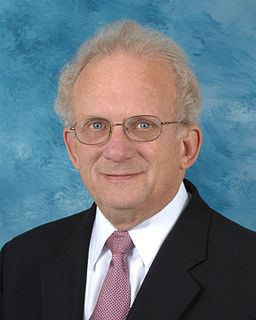A Quote by Paul A. Baran
That the means of imperialist policy overshadow almost entirely its original ends has tremendous implications.
Quote Topics
Related Quotes
What are the policy implications of the government and this fantasy Islam, what are the policy implications of a United States government that believes Islam is as anti-terror as you and I are? Well, it means that Islamic doctrine can never be cited as the cause of terrorism, as a matter of policy. And it never is. It never is.
And violence is impractical, because the old eye for an eye philosophy ends up leaving everybody blind .. It is immoral because it is a descending spiral ending in destruction for everybody. Means and ends are inseparable. The means represent the ideal in the making; in the long run of history destructive means cannot bring about constructive ends.
The end is what you want, the means is how you get it. Whenever we think about social change, the question of means and ends arises. The man of action views the issue of means and ends in pragmatic and strategic terms. He has no other problem; he thinks only of his actual resources and the possibilities of various choices of action. He asks of ends only whether they are achievable and worth the cost; of means, only whether they will work. ... The real arena is corrupt and bloody.
For the fundamental fact of human psychology is that society, instead of remaining almost entirely inside the individual organism as in the case of animals prompted by their instincts, becomes crystallized almost entirely outside the individuals. In other words, social rules, as Durkheim has so powerfully shown, whether they be linguistic, moral, religious, or legal, etc., cannot be constituted, transmitted or preserved by means of an internal biological heredity, but only through the external pressure exercised by individuals upon each other.
We will never have peace in the world until men everywhere recognize that ends are not cut off from means, because the means represent the ideal in the making, and the end in process, and ultimately you can't reach good ends through evil means, because the means represent the seed and the end represents the tree.
Now it is usual-but not to say normal-for people to interest themselves primarily in means, without noticing that means exist only in relation to ends and that, in accepting certain means, they unconsciously accept the ends that make them so. In other words, they accept whatever philosophy happens to be embodied in the values and institutions of a particular civilation.
War is by definition the indiscriminate killing of huge numbers of people for ends that are uncertain. Think about means and ends, and apply it to war. The means are horrible, certainly. The ends, uncertain. That alone should make you hesitate. . . . We are smart in so many ways. Surely, we should be able to understand that in between war and passivity, there are a thousand possibilities.

































